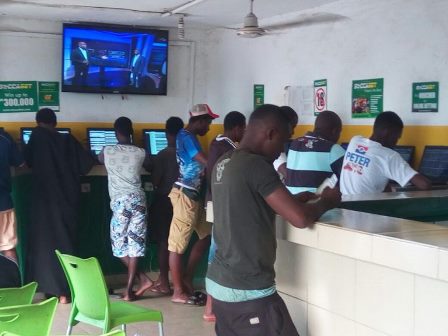The Regulatory Landscape
Across Africa, the shimmer and allure of gambling resonate profoundly. However, regulatory practices exhibit stark contrasts from one country to another. For instance, South Africa boasts a rigorous legal framework for gambling through its National Gambling Act of 2004, ensuring that the industry’s diverse aspects are meticulously licensed and supervised.
Contrastingly, nations like Nigeria and Kenya are in the throes of streamlining their regulatory environments. This gap has birthed a proliferation of unregulated gambling platforms. While they might be enticing for many, their unpredictable standards for fairness and security make them precarious.
Market Trends and Dynamics
The gambling wave, especially its online facet, is gaining traction across the African continent. JeffBet, a prominent online casino entity, predicts a zenith in African online gambling revenue at a staggering $1.62 billion by 2023. The numbers tell the story of a robust compound annual growth rate (CAGR) of 8.60% from 2023 to 2027. Fuelling this growth narrative is an anticipated user base expansion, expected to touch 27.5 million by 2023 and a user penetration of 2.0%.
Diving into the African populace’s preferences, sports betting emerges as the clear favourite, capturing the lion’s share of the market. On the geographical front, Sub-Saharan Africa stands as the epicenter of all gambling activities. South Africa leads the charge with its myriad of physical casinos, burgeoning online platforms, and multiple sports betting centres. However, countries like Nigeria, Kenya, and Ghana are still catching up, steadily carving out their niche in this booming sector.
Impacts on Society
While gambling’s cultural significance in Africa is indisputable, it also brings with it a set of challenges. Proponents see it as a meld of entertainment and a revenue stream for administrations. Critics, on the other hand, underscore the impending dangers, particularly problem gambling. This addictive tendency has multifaceted implications, ranging from dire financial repercussions to emotional turmoil. The grim reality remains that several African regions lack a comprehensive understanding of such issues, making therapeutic interventions sparse.
Additionally, the repercussions of gambling are profoundly felt by susceptible groups, especially the youth and the economically distressed. Intrusive advertising strategies and adult accompaniment often expose minors to gambling. Conversely, the economically challenged view gambling as a potential escape from their monetary woes. Despite these complexities, the revenue prospects from levies and licensing fees make the industry hard for African governments to sidestep. However, the emphasis on stricter supervision and ethical considerations is gaining momentum.
Looking Ahead: Future Prospects
The horizon looks promising for Africa’s gambling domain. With an increasing number of mobile devices, enhanced internet infrastructure, and the ever-growing allure of sports betting, the industry is set to experience exponential growth. Yet, a seamless future mandates addressing crucial issues like stringent regulatory adherence, fortified consumer safeguards, and bolstered awareness of gambling-related risks.
Conclusion
The African landscape’s inclination towards gambling is palpable. Its evolutionary path points towards a prosperous future. While potential setbacks, especially concerning vulnerable sectors, warrant concern, the economic upshots are undeniably significant. As the industry evolves, harmonised efforts between governments, regulatory entities, and industry experts are vital to chisel out a landscape that balances profitability and safety.






